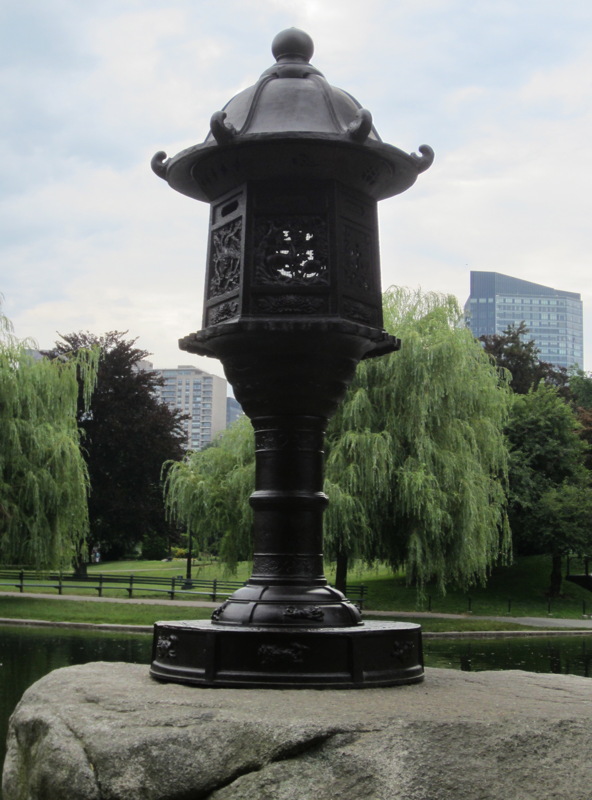Japanese Lantern
|
Japanese Lantern In 1904, Japanese art dealer Bunkio Matsuki gave this lantern as a gift to the City of Boston. Lanterns have a long association with Buddhist temples and shrines, where they have been used as votive lights since the 7th century. They were later used to decorate and light secular sites as well, especially gardens. Japanese lanterns are typically made from stone, wood, or metal, and some feature elaborate designs. This lantern is believed to date to the 16th century, but little else is known about it. Bunkio Matsuki was born into a family of artists and temple builders in Japan. He originally trained to be a Buddhist monk but immigrated to the US in 1888, where hew chose a very different profession: promoting Japanese art and culture to the American public. Matsuki managed a store in Boston specializing in Japanese art and antiques. He also worked for governments and museums to appraise and inspect art objects and published a journal called Lotus. During the early 20th century, oriental designs were considered exotic and fashionable among well-to-do Americans, and Matsuki’s Boston store certainly contributed to the trend. Photo 29b, July 2012 |

|
|
Japanese Lantern Photo 31b, July 2012 |

|